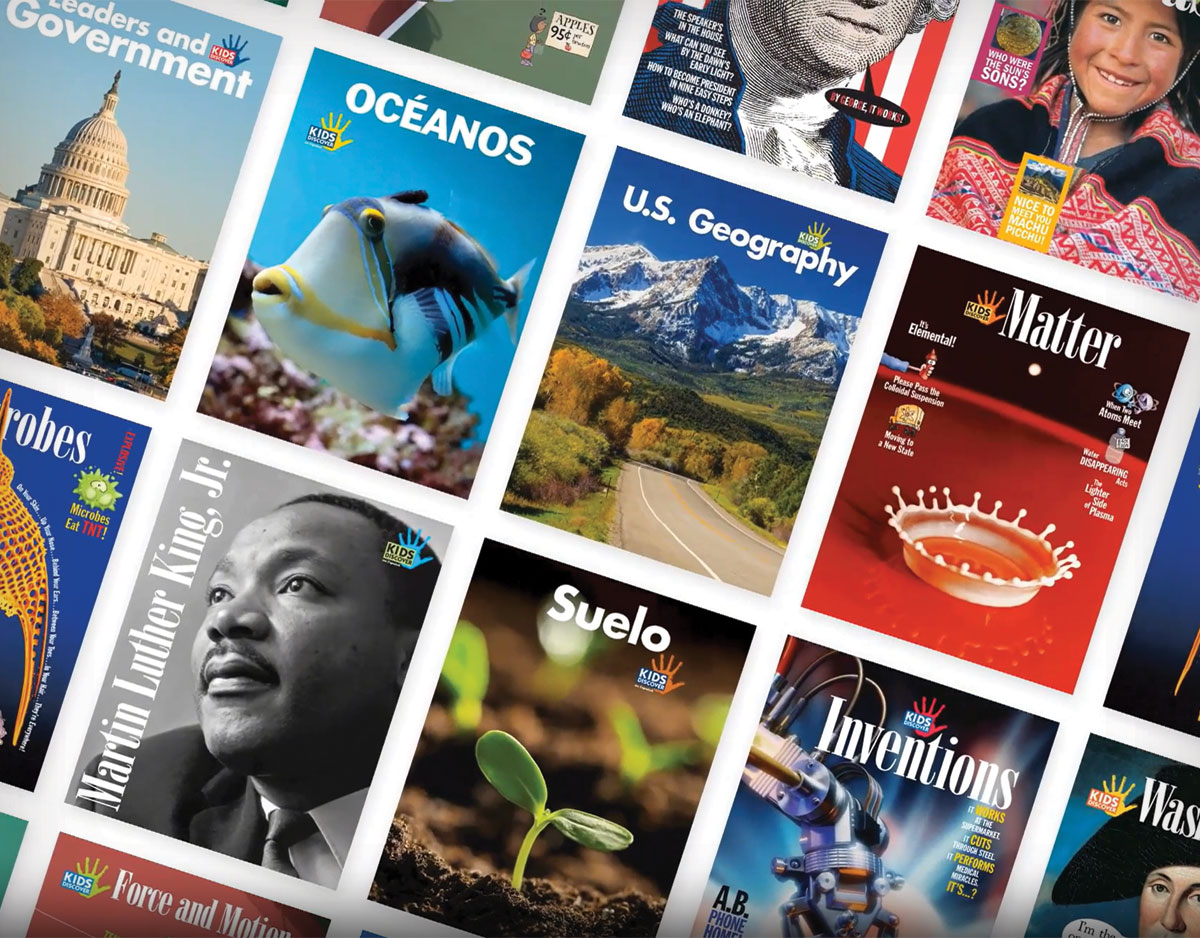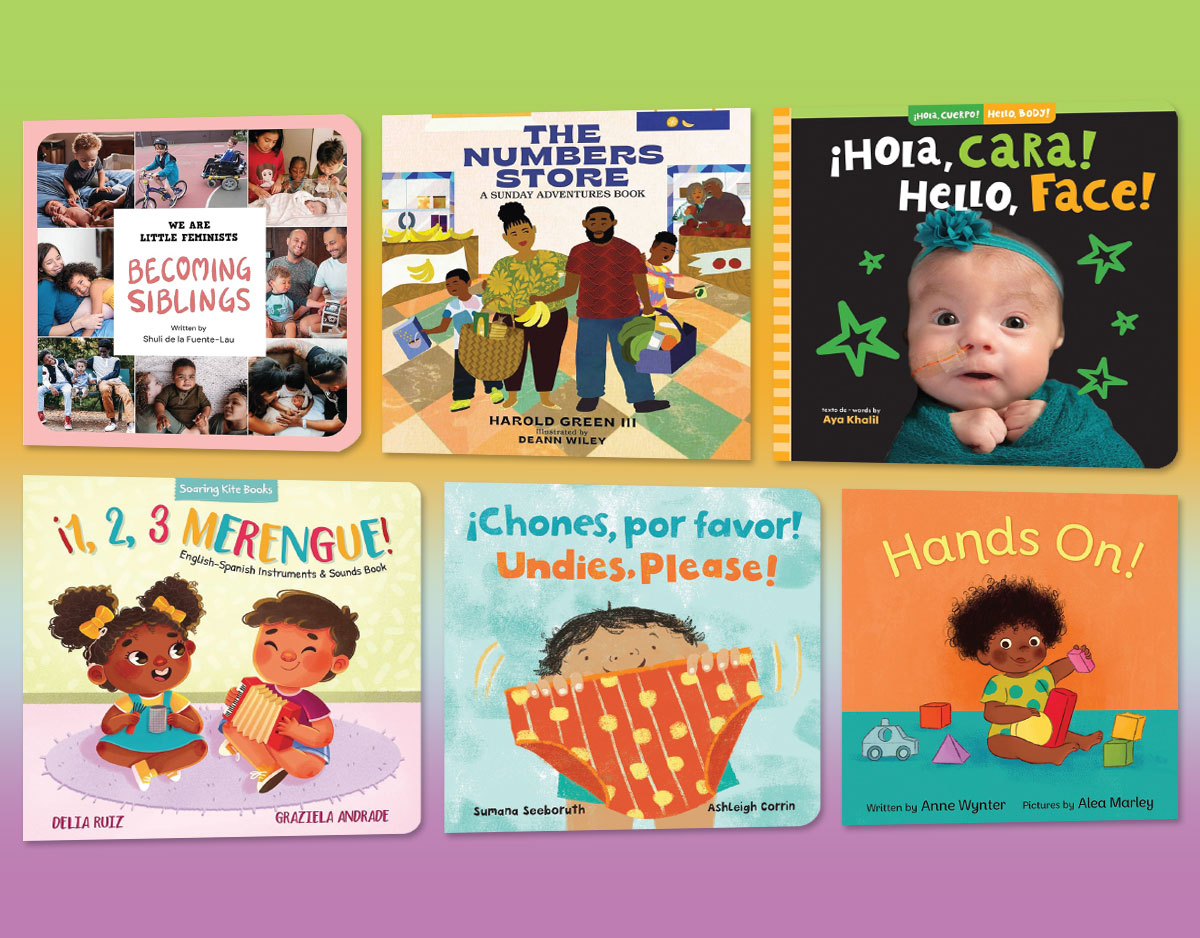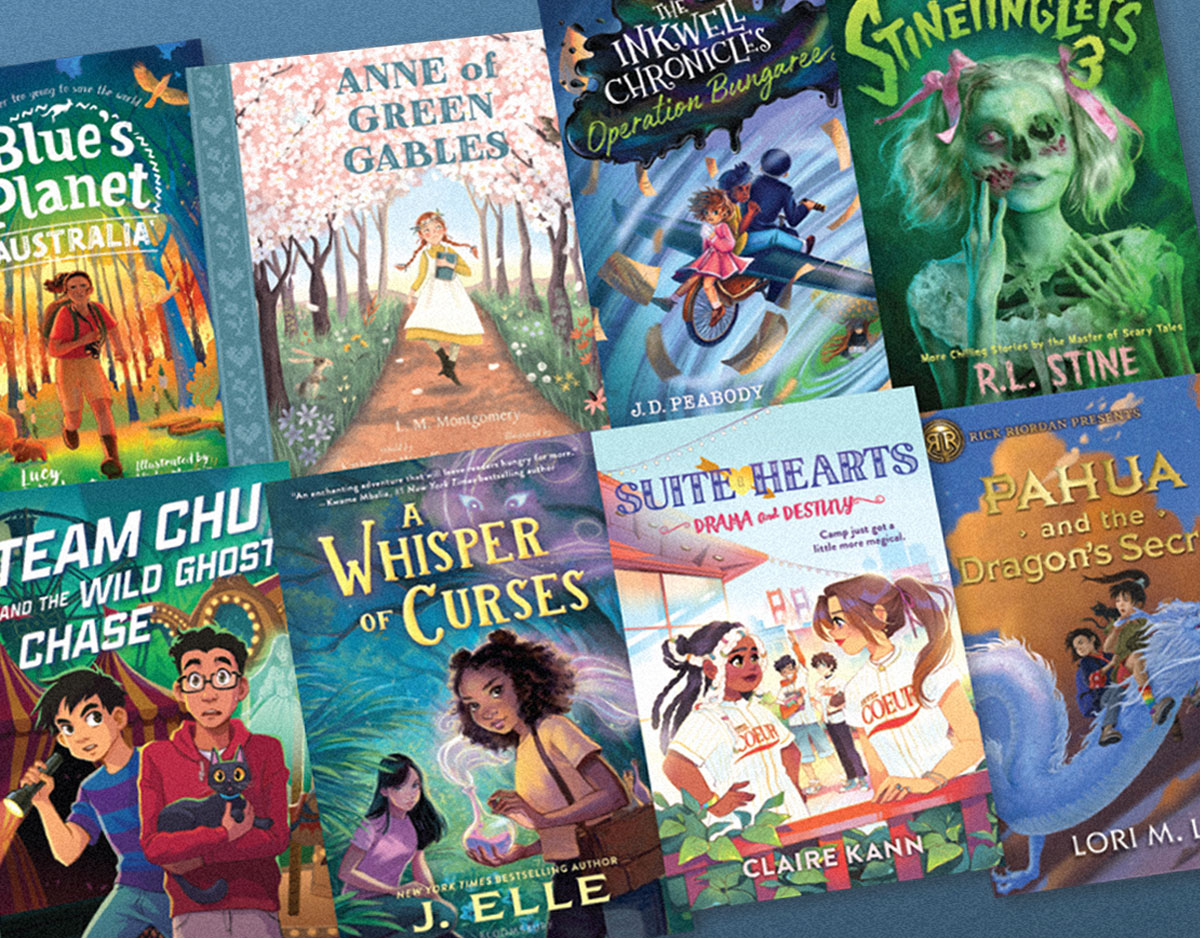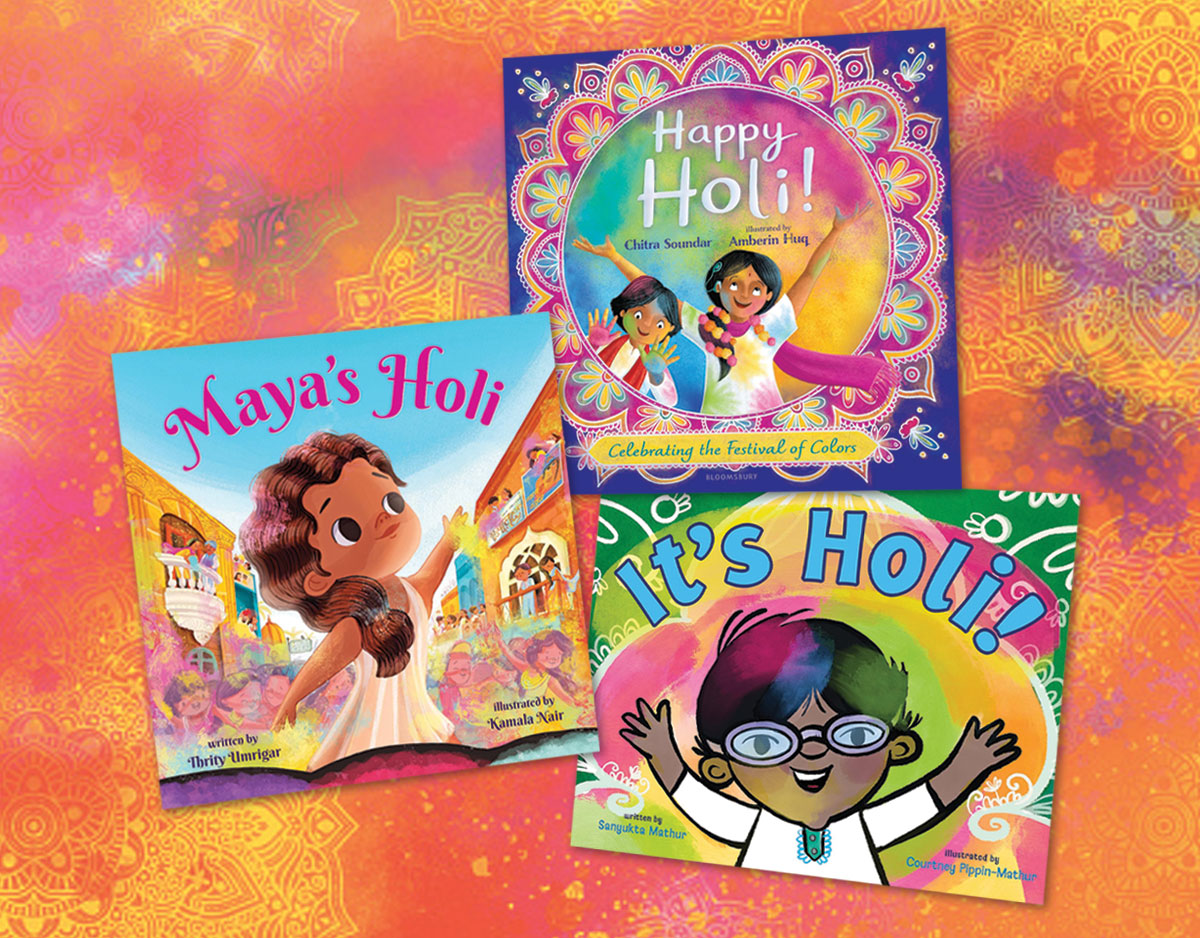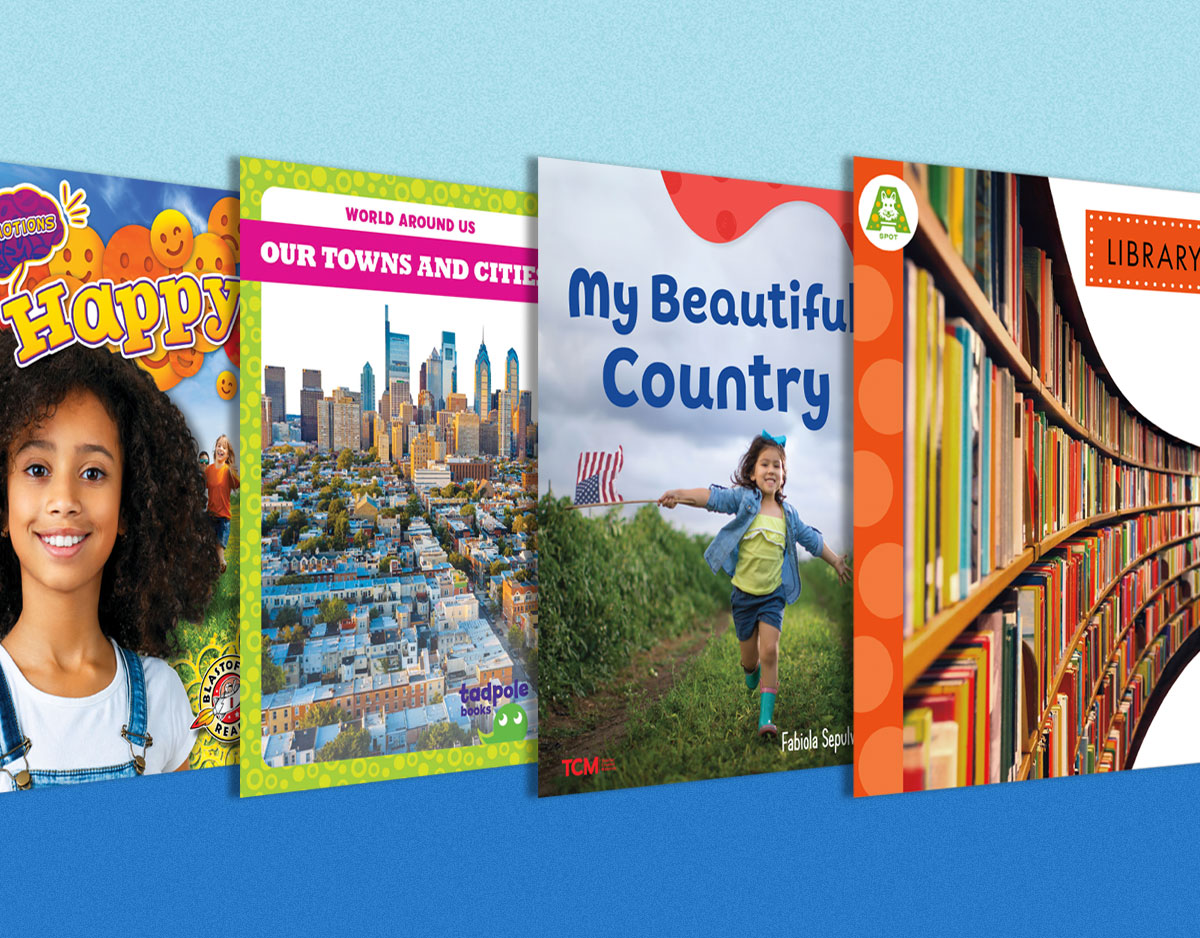3 Classic Tropes as Reimagined in The Love Match, a guest post by Priyanka Taslim
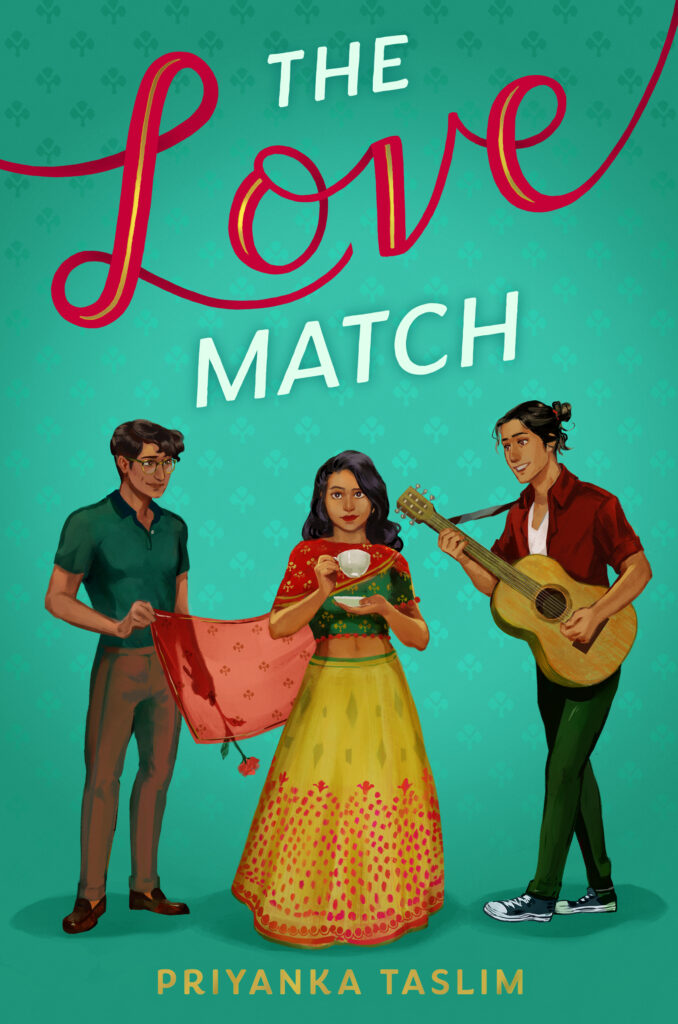
An unfortunately common adage in publishing circles is “this formerly popular trend is dead.” I’ve heard this applied to many things—genres, tropes, vampires, even entire categories like “young adult”—but when there are still marginalized authors only just breaking into the industry, who’ve never before received the opportunity to give these tropes an original spin, should we really hammer away at the final nail on the coffin and claim these elements are forever beyond revival?
My debut novel, The Love Match, has many tropes and I’ve never shied away from them. The most infamous of them all is probably the love triangle. It’s one of the most commented upon aspects in reviews, in fact. Readers often say they were wary about the concept but ended up pleasantly surprised—or that it was “just another love triangle”—and either way, they’re entitled to their opinion.
ADVERTISEMENT
ADVERTISEMENT
But when I set out to write the book, I did so with intention. I wanted to have fun with these tropes that I loved myself as a teen, while also subverting and getting creative with them. While I know that there are people who might never pick up my book simply because a love triangle exists in it, I think the lens I explore the trope with—as a Bangladeshi-American, Muslim woman—can reinvigorate it in unique ways.
Here are three popular tropes, tropes that have existed in rom coms for ages, reimagined within The Love Match in big or small ways:
1. First of all, we’ve got to talk about the love triangle, right? I know lots of people have mixed feelings about love triangles, but I grew up during the golden age of the trope, when the majority of young adult novels I read incorporated them and thousands of fans broke into factions over the ships they supported. The Twilight and Hunger Games era.
Something that immediately sets The Love Match apart is that it has a love triangle between not one, not two, but three Bangladeshi characters. The heroine, Zahra, has two very different boys vying for her heart, something I never thought I’d see represented in a romance novel as a self-conscious Bangladeshi teen from a working class family myself. It didn’t seem like girls like me were worthy of that sort of thing. We were too poor, too brown, too other. But because I don’t want future generations of readers to feel that way, Zahra came into being.
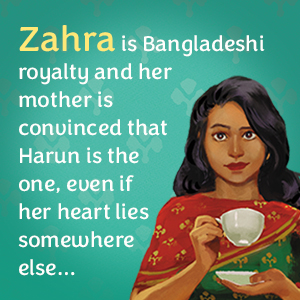
Then you have the boys. Harun is stoic and broody, with a sensitive side. Nayim is mysterious and charming, a musician. We’ve seen these tropes before, but when there are still only a handful of Bangladeshi authors in western young adult publishing, when very few of their books feature young Bangladeshi men as main characters, I think writing Harun and Nayim was revolutionary in its own small way, and their existence proves to readers that there are many ways to embody the same identity, even in a book where their identity isn’t really the conflict. The fact of the matter is that they also counter narratives about who has been worthy of being seen as a hero for so long—“tall, dark and handsome” has rarely belonged to men of color, but the characters of The Love Match possess brown skin, dark hair, dark eyes, as well as other non-Eurocentric features. You can tell that the moment you set eyes on the cover.
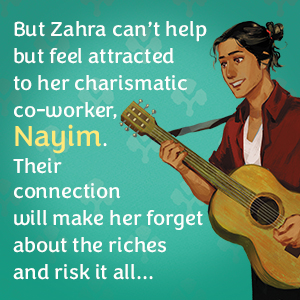
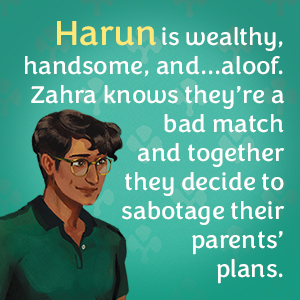
Frankly, this may not be to my advantage. There are many people who see value in books about characters of color if and only if they are in a relationship with a white love interest. The books featuring characters of color in prominent roles which are most often heavily marketed and supported…are also often either written by a white author or populated with enough sympathetic white characters that they are palatable to the still heavily white industry of publishing. Either that, or colorism comes into play, and lighter, more “acceptable” people of color are uplifted in a way books about South Asians might not be. Anti-Blackness only adds more mines to the fields that Black authors have to tiptoe through.
Until meaningful change occurs within the industry, I am going to believe that the love triangle I wrote is a revolution, and a joyful one at that.
2. Another trope I adored growing up was anything to do with royals. Now that I’m a more discerning adult, I have complicated feelings about monarchies and the role they’ve played in the history of my colonized ancestors, but that never stopped me from reading every book in the Princess Diaries series or seeking out more diverse books that comp to the series and published more recently, such as the delightful Tokyo Ever After. The Love Match tackles the idea of modern day royals with a more grounded approach, however. Zahra calls herself a princess at the very start of the book—and she is!
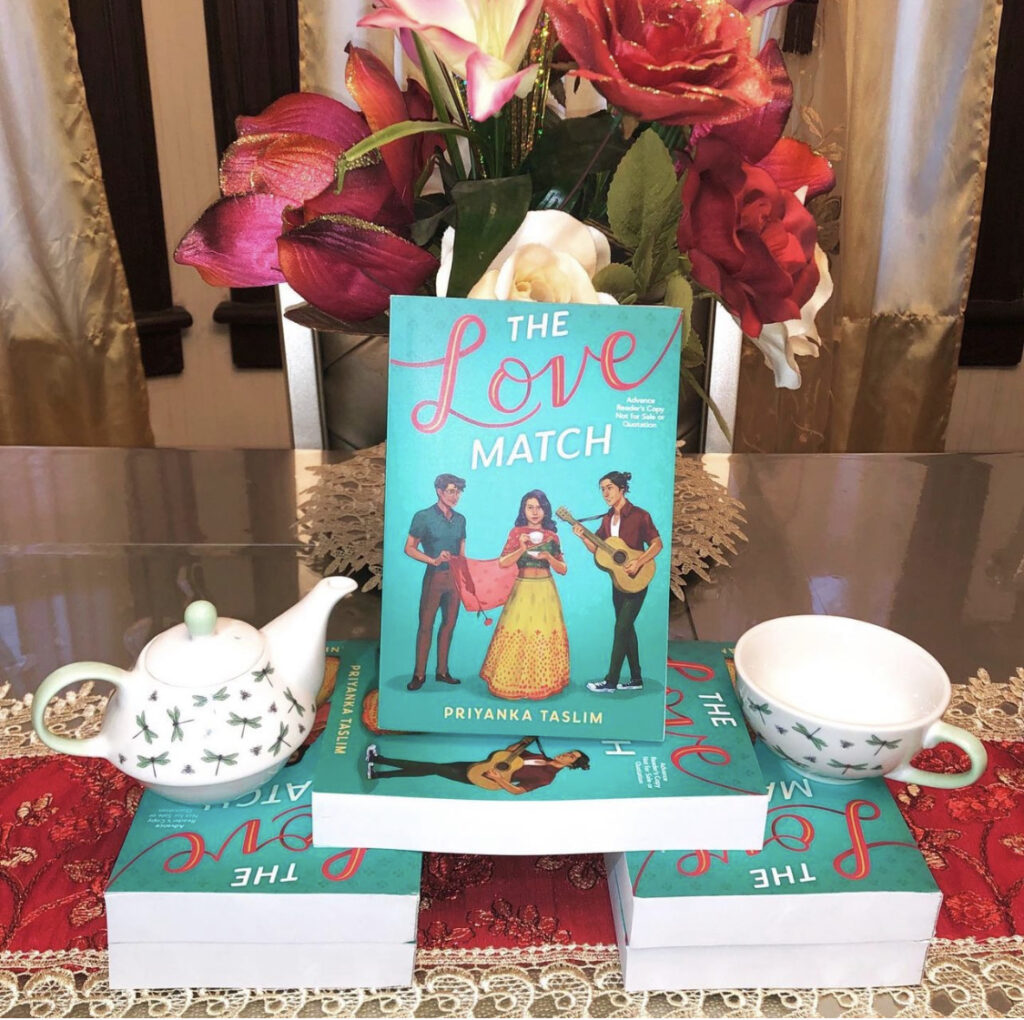
Basically… But she’s also working full time in a tea shop to make ends meet. There’s no plot twist where a glamorous grandmother arrives and tells her a kingdom far, far away is waiting for her to reclaim its throne. Zahra, like many modern day South Asians (including myself), simply has a prestigious lineage, which technically makes her sort of royal…just without any of the bells and whistles. The history of places like Bangladesh, and the importance many Bangladeshis place on their heritage, play a big part in the book, exploring classism through what I believe is a fresh lens, even if at first glance it doesn’t feel like a flashy and glamorous romp through royal life.
3. This leads me to the last trope I want to discuss—forbidden love. There are other books by South Asian and Muslim authors, as well as by white authors, that explore this trope, but at least before the cover reveal, whenever I talked about The Love Match having an element of forbidden love between Zahra and her new coworker, people often assumed he was non-Bengali (let’s be honest, they probably imagined he was white). In their minds, they could only picture a Stern Asian Mother™ disapproving of her daughter being in an interracial relationship, but growing up in the same diaspora community that The Love Match is set in, I saw plenty of feuds break out even over two Bangladeshis falling in love—because someone within the relationship wasn’t considered suitable for any number of reasons. “She’s too dark, he’s too short, she’s too educated, he’s not educated enough”—as well as the one that felt the most nebulous and Austenian to me, as an American Bengali: “He doesn’t come from a good bongsho.” I’ve heard this as the reason my parents didn’t want to pursue a match for me plenty of times, that a guy didn’t have a strong enough family line to match with ours, so it didn’t matter if he was educated or good-looking.

That’s slowly changing as more parents decide they simply want their children to be happy and loved, including my own, but it’s still enough of an issue that I wanted to reframe modern Bangladeshi (diaspora) social politics in the spirit of Austen’s comedies of manners. Thus, you have Zahra, who might be poor but is seen as a prize in the matchmaking market because of her great-great-great grandparents, paired with Harun, who is decidedly not a prince, but is gorgeous, on his way to Columbia, and the only son of a wealthy family of restaurateurs living the American dream of immigrant success. Throw in Nayim, who is a recently arrived immigrant working as a dishwasher at the same tea shop as Zahra, whose bongsho no one knows because he’s an orphan, and you have the makings of a proper soap opera, but also a dissection of these outdated concepts of class and status.
There are quite a few more tropes within the story that I’m excited for readers to discover when they read The Love Match. I hope they will give it a chance and do away with the notion that harmless, joyful tropes can “die” before an endless amount of marginalized authors who’ve never gotten a chance to write them can do it.
Meet the author
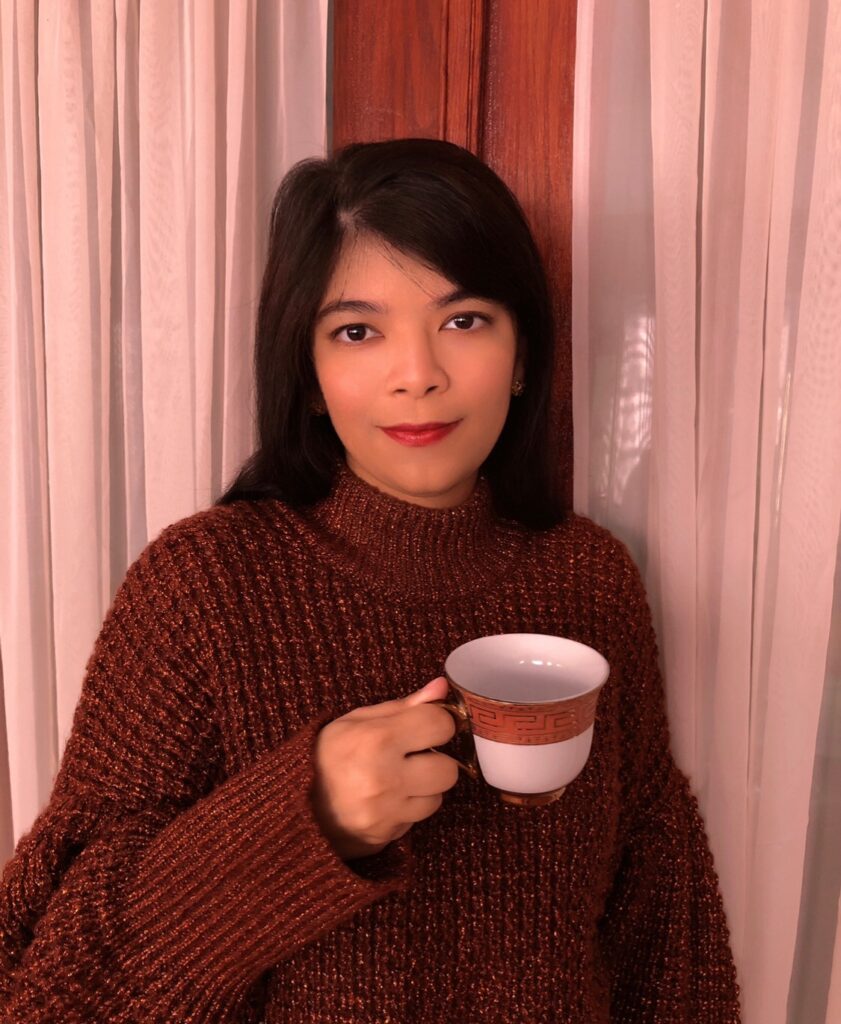
ADVERTISEMENT
ADVERTISEMENT
Priyanka Taslim is a Bangladeshi American writer, teacher, and lifelong New Jersey resident. Having grown up in a bustling Bangladeshi diaspora community, surrounded by her mother’s entire clan and many aunties of no relation, her writing often features families, communities, and all the drama therein. Currently, Priyanka teaches English by day and tells all kinds of stories about Bangladeshi characters by night. Her writing usually stars spunky Bangladeshi heroines finding their place in the world—and a little swoony romance, too. You can connect with her on Twitter and Instagram @BhootBabe and check out her website, PriyankaTaslim.com. The Love Match is her debut novel.
About The Love Match
To All the Boys I’ve Loved Before meets Pride and Prejudice in this delightful and heartfelt rom-com about a Bangladeshi American teen whose meddling mother arranges a match to secure their family’s financial security—just as she’s falling in love with someone else.
Zahra Khan is basically Bangladeshi royalty, but being a princess doesn’t pay the bills in Paterson, New Jersey. While Zahra’s plans for financial security this summer involve working long hours at Chai Ho and saving up for college writing courses, Amma is convinced that all Zahra needs is a “good match,” Jane Austen style.
Enter Harun Emon, who’s wealthy, devastatingly handsome, and…aloof. As soon as Zahra meets him, she knows it’s a bad match. It’s nothing like the connection she has with Nayim Aktar, the new dishwasher at the tea shop, who just gets Zahra in a way no one has before. So, when Zahra finds out that Harun is just as uninterested in this match as she is, they decide to slowly sabotage their parents’ plans. And for once in Zahra’s life, she can have her rossomalai and eat it too: “dating” Harun and keeping Amma happy while catching real feelings for Nayim.
But life—and boys—can be more complicated than Zahra realizes. With her feelings all mixed up, Zahra discovers that sometimes being a good Bengali kid can be a royal pain.
ISBN-13: 9781665901109
Publisher: Salaam Reads / Simon & Schuster Books for Young Readers
Publication date: 01/03/2023
Age Range: 12 – 18 Years
Filed under: Guest Post
About Amanda MacGregor
Amanda MacGregor works in an elementary library, loves dogs, and can be found on BlueSky at @amandamacgregor.bsky.social.
ADVERTISEMENT
ADVERTISEMENT
SLJ Blog Network
The 2025 Ninja Report: It’s Over
Book Giveaway: Foundling by D.M. Cornish
You Talk Too Much, So Just Shut It Already!, vol. 1 | Review
30 Contenders? Our Updated Mock Newbery List
When Book Bans are a Form of Discrimination, What is the Path to Justice?
ADVERTISEMENT



